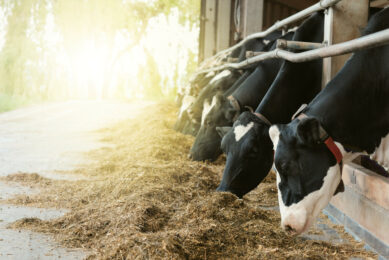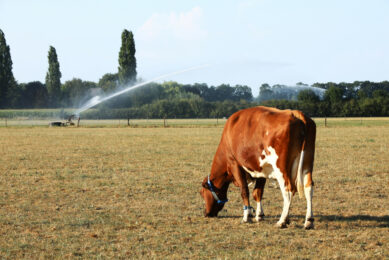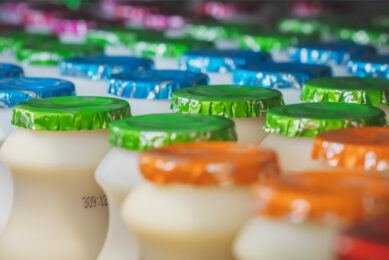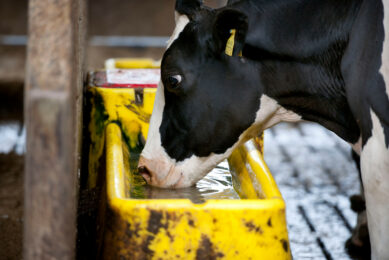Grape polyphenols: An ally to fight heat stress
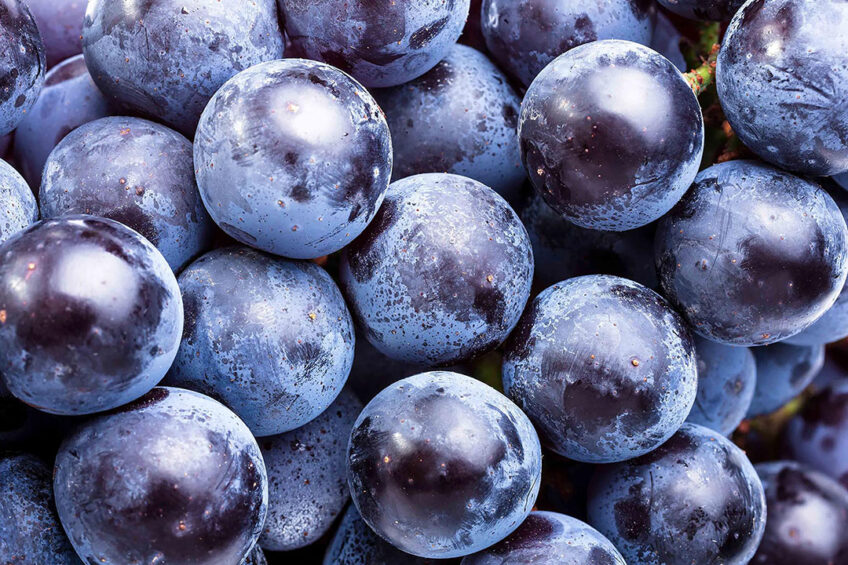
Antioxidant diversification is essential to improve heat stress resilience and tackle the oxidative stress issue. In livestock, certain polyphenols from grape extracts allow to preserve a high level of performance and help combat the negative effects of heat stress.
Looking at the metabolism of livestock animals, they all share a very similar antioxidant system, each one plays a specific role at the molecular level. Vitamin E ensures the cell membrane stability while vitamin C neutralises free radicals inside the cell. Then some enzymes are involved in the detoxification chain: The Superoxide Dismutase (SOD) initiates this process while the Glutathione Peroxidase finishes the process.

Consider the antioxidant system
Such system is strongly solicited in modern farming due to high level of performance, even more in case of heat stress episodes, since the free radicals’ production increases lead to overwhelmed antioxidant defences. Nutritional strategies are major solutions to alleviate heat stress, as well as physical cooling measures. By increasing animal antioxidant intake, it is possible to compensate the loss due to lower feed consumption, thereby reducing cell damages. Such strategy must consider the antioxidant system in its globality. Betting only on vitamins is insufficient. The best protection is set up once all the antioxidant mechanisms are stimulated, which also means increasing the antioxidant enzymatic activities.
Complete and efficient antioxidant cover
Nor-Feed has built an expertise on animal stress since 2003 by developing its Nor-Grape range. The company draws attention specifically to heat periods, which can be extremely critical for animals. “At a nutritional level the best way to reduce such negative impact is the diversification of the exogenous antioxidants. The cell, like a castle, is only well protected if using all the defences to fight. Numerous studies shows that betting only on high level of synthetic vitamin E or vitamin C is never the best option,” explains Dr Paul Engler. By improving the antioxidants defences at every level, Nor-Grape compensates the oxidative stress. Several biological pathways have been identified, allowing the grape polyphenol product to act as a keystone by stimulating the production of certain endogenous defences while also regenerating vitamins E and C.
Heat stress impacts egg and chick quality
Under heat stress, birds tend to deplete their antioxidant defences. In breeders, such oxidative stress lowers the concentration of immunoglobulins and phenolic compounds in the eggs. This directly impacts the chick quality, threatening their immunity and liveability. Moreover, newly hatched chicks are not able to assimilate vitamin E from the diet effectively and are dependent on its reserve built during embryonic development. Increased vitamin E dietary supplementation of the newly hatched chick has limited ability to increase their vitamin E status. This makes young birds very dependent of the breeder antioxidant status. Standardised grape polyphenols from Nor-Grape are well assimilated. Studies have shown the increase of total phenolic compounds (+18%) and more specifically of the alpha tocopherol (+15%) in eggs when laying hens where supplemented with 20ppm of Nor-Grape. Converging observations were made with broilers vaccinated against Gumboro and Infectious Bronchitis under artificial thermal discomfort (30°C). Birds which received 30ppm of the grape polyphenol product did express 82% of vaccination success while only 45% of the control birds were immunised thanks to the vaccines.
Figure 1 – Temperature Humidity Index during the trial period.

Polyphenols impact on sow performance
Heat stress is known to have huge impacts on growing and adult pigs, due to their poor capacity to dissipate heat. Heat waves are associated with higher mitochondrial activities and a gap in the feed consumption, which impact the antioxidant status. In maternity, serious impacts are deplored. During gestation, the high production of free radicals disrupts the nidation leading to dramatic decreases in prolificacy, while in lactation, higher oxidative stress reduces the colostrum quality and quantity. This can be fatal for the litter. A trial was conducted under hot season in Vietnam on 88 sows. Nor-Grape was given from weaning to 3 weeks after insemination, so on a period of 28 days covering insemination and the early gestation. High humidity and temperature reaching up to 35°C led to an important heat stress for sows (Figure 1). Sows which received the grape polyphenol product on early gestation gave birth to one extra piglet/litter resulting in +2,6kg piglets/litter at farrowing.
Rumen-protected version of Nor-Grape
To ensure equivalent benefits in ruminants, Nor-Feed has developed an encapsulated form of the product called Nor-Grape BP-O. The rumen-protected technology ensures the stability of the grape polyphenols within the rumen and thus ensures the optimisation of its use by the animal. Better colostrum quality (+42% IgG) and higher milk production (+1,84kg/cow/d) are some of the benefits overserved.
To know more about Nor-Feed’s trials and other products for animal health contact@norfeed.net.
References are available on request
Authors:
Cédric Vandenbossche and Dr Paul Engler, NOR FEED
Join 13,000+ subscribers
Subscribe to our newsletter to stay updated about all the need-to-know content in the dairy sector, two times a week.



